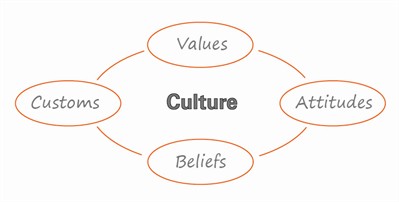How Culture is Linked to Translation and Interpretation
Culture is a combination of the characteristics and knowledge of a particular group of people. Those characteristics are defined by everything from language, traditions and customs to religion, music and art. The close relationship between mankind and language makes translation and interpretation the greatest tool for worldwide understanding of one another.
Cultural Competence
We can define “cultural competence” as a consistent set of values, behaviors, attitudes and policies that enable a system, organization or people to work effectively in a certain cross-cultural situation.
Cultural competence involves the complete understanding and respect of a culture and also the knowledge of “what to say to whom, where and when” from a social and pragmatic perspective. A complete understanding of the cultural nuances will allow translators and interpreters to effectively and appropriately deliver intended messages.
Cultural Background, Awareness and Sensitivity

Ethnicity, language, religion, and nationality are crucial elements that make up a culture. In regions around the world there are cultural diversities and conflicts that can affect how translators and interpreters do their jobs. Successful cross-cultural communication depends on verbal communication, the language spoken, and also on non-verbal communication, like context, body language, and the relationship with time, personal space and authority.
Translators and interpreters need to be culturally competent for each of the target audiences they are working with by developing a thorough understanding of cultural background, awareness and sensitivity in order to effectively communicate messages from the source language to the target language audience. They must do more than repeat the source language’s words in the target language, they must deliver the meaning of those words in a way that makes sense to the audience.
Summary
Professional translators and interpreters need to know more than the language, they must know the culture. They also need to commit themselves to an ongoing process of learning, so they can be up to date with current events and can act accordingly when working with cultures that may be sensitive to certain words, phrases or delivery methods.
Developing technical competencies like a good command of the languages, familiarity with terminology and procedures, translation or interpretation methods, along with interpersonal competencies like being aware of personal values will be the foundation for a successful cross-cultural communicative situation and will allow translators and interpreters to deal with a variety of scenarios.
